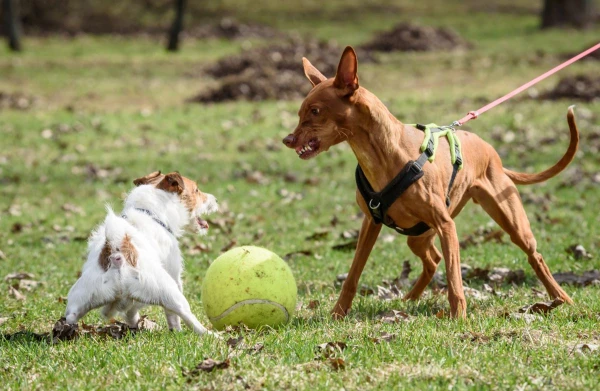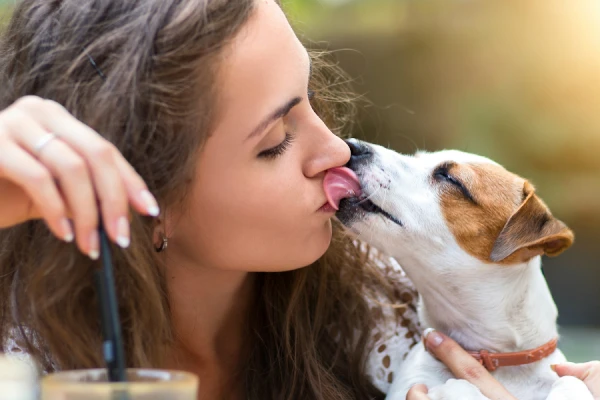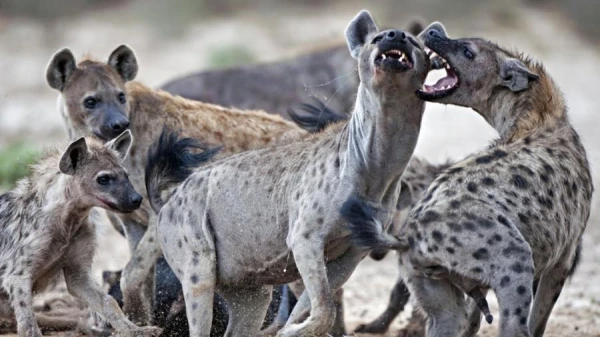
If your pet reacts vigorously to other dogs, you are not alone. Almost every owner faces the issue of their dog pulling on the leash, barking at other animals, or avoiding interaction with them. But what lies behind such behavior — aggression, fear, or unmet needs?
Explained by Natalia Kir, animal psychologist.
Why Dogs Need to Interact with Other Dogs
A dog is a social animal. Communication for it is not just play or entertainment, but a basic need, like food, sleep, or movement. Therefore, a healthy interest in other dogs is a sign of the animal's well-being.
Communication with other pets is considered normal when there is an opportunity to approach, sniff, play, or pass by without conflict.
"The norm is not when a dog loves everyone. It can have 'favorite enemies' — someone it doesn't like for no reason, and that's normal. We also don't treat all people the same way: we love some, we don't love others, often without obvious reasons," the expert explains.
In 'dog language,' it is considered extremely rude when a companion suddenly rushes to meet another dog. If your pet avoids such contacts, this is also considered normal. Introducing such a dog to its peers is better done from a distance, where the dogs have the opportunity to look at each other and exchange signals, advises the expert.
When Behavior Exceeds Normal Limits
Not every interaction between dogs is healthy. The animal psychologist identifies three alarming signals:
- Aggression towards other dogs — barking, growling, lunging.
- Fear — the dog avoids interaction, hides behind the owner, tucks its tail.
- Ignoring — complete lack of interest in peers.
"At the same time, one cannot explain ignoring other dogs as 'introversion.' I often hear this from owners. But this is not introversion; it is serious problems," emphasizes Natalia Kir.
Dangerous Advice: Why You Shouldn't Prevent Your Dog from Meeting Other Dogs
Some trainers still advise not to let a dog interact with other animals during walks so that it 'listens better to its owner.' The animal psychologist is categorical on this issue. "Training and raising a dog does not contradict its communication with peers," she emphasizes.
The consequences of such an approach are behavioral problems, including the emergence of aggression towards other animals. The pet wants to socialize so much that it can no longer hold back: it starts barking and lunging at other dogs. And while a puppy may be forgiven for such behavior, an adult dog will not be — conflict is inevitable.
A dog deprived of communication experiences stress. Hormones block the prefrontal cortex. The animal loses self-control, and its knowledge consolidation is disrupted. The opposite effect occurs: you wanted the dog to 'keep itself in check' and focus on training, but its brain, due to stress, is unable to absorb new skills. As a result, both training and the animal's nervous system suffer.
"Communication can and should be controlled, but it cannot be completely restricted," explains the animal psychologist.
A Dog Barks While Walking: How to React Properly
It is considered that if a large dog barks or reacts excitedly to others, it is aggression, while if a small dog does this, it is 'typical norm.' This is a misconception, says Natalia Kir. Such behavior is unacceptable for both a German Shepherd and a Chihuahua.
"Barking is just the tip of the iceberg. We work not with barking, but with the reasons for such a vigorous reaction: stress, frustration, and unmet needs," says Natalia Kir.
If a dog barks, gets excited, or lunges, do not scold it — this will only increase its stress. Instead, it is important to help the dog learn to calmly perceive others.
If such behavior has manifested with age, especially towards peers of the same sex, the animal psychologist advises checking the animal for chronic pain. Such behavior may indicate health problems.















Leave a comment